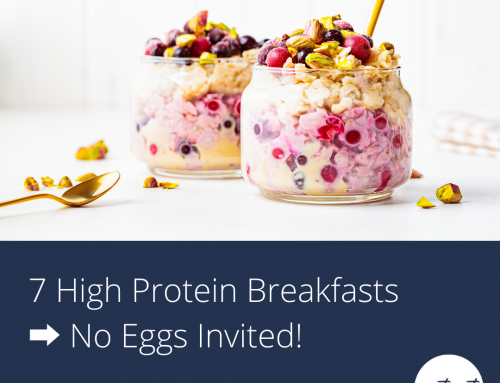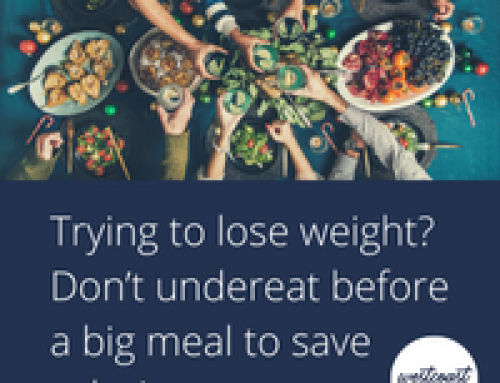There is a lot of buzz about food and immune health right now, and for good reason. I’m here to help you cut through the information overwhelm so you can focus on what matters most when it comes to supporting your immune system.
Sidebar: Before you buy that supplement, tea, or elixirThere are a lot of people capitalizing on the current fear around immune health, and selling all sorts of things with claims of prevention and cure. My mantra? If it sounds too good to be true, it is. Most herbals have not been well tested, and while many are harmless at worst, others can actually be harmful. If you’re on medications or have a health condition, your best bet is to avoid random supplements unless you can clear it with your doctor, dietitian or pharmacist first. Remember natural does not equal safe and separating fact from pseudoscience is really challenging if it’s not your area of expertise. Marketers are savvy in framing their “cures” with words and explanations that seem to make sense.
How to help:
Fibre
Fibre is the unsung hero of food and immune health. Increasing fibre intake from real whole foods boosts your immune function in a number of ways including influencing how our Gut-Associated-Lymphoid-Tissue (GALT) responds to invaders, shifting immune cells from pro-inflammatory to anti-inflammatory peacekeeper, and supporting production of T cells (one of our anti-infection “killer” cells that can act directly on viral cells in our body). Fibre also promotes growth of immune enhancing bacteria in our gut community, the microbiome!
Goal: Get more! Ideally you should be aiming for 25-30 grams of fibre per day at a minimum, but anything more than what you currently have is great.
- Swap to whole grains from processed ones – wild or brown rice instead of white, sprouted grain bread instead of the regular stuff
- Change from processed foods to whole foods – try swapping in spaghetti squash or zucchini noodles for some of your pasta, make stuffed sweet potatoes instead of sloppy joe’s, or experiment with a cauliflower pizza crust.
- Add fibre boosters once or twice a day: My favourites are chia and flax, but psyllium and oat bran work well too! Stir into smoothies, oats, or even sprinkle on a yogurt parfait for dessert. Work up to 1-2 tbsp gradually (along with lots of water) as your digestive system tolerates.
- Include some beans or legumes in your meals! Chickpeas, lentils, black beans (and others) are all great sources of immune boosting fibre. Try subbing in lentils for ¼ of your ground beef, sprinkling some black beans on a taco salad, or cooking up a big batch of chili for lunches.
- Increase fibre rich veggies at every meal: Working up to half a plate or more will up your fibre without the tummy ache of having all your veggies at dinner (and give you bonus immune supportive vitamins and minerals).
- More practical ideas on getting more fibre here and recipes for fibre rich veggies here.
More food-based zinc, before you get sick
Zinc is an essential mineral that gets a lot of buzz as something you should take once you get sick, but getting enough zinc from your food before your immune health takes a hit is equally important. One of the challenges I’m seeing is that as plant based or vegan diets have become trendy, lower zinc intake has cropped up more in my clients. Vegetarians and vegans need about 50% more zinc to make up for the lower absorption from plant based foods, it’s doable with some planning! We’ll talk about both plant and animal sources here so you can choose what works best for you.
Goal: 8-11 mg (women and men respectively), or up to 16-22 mg if you only have plant based sources.
- Meats, poultry and seafood (especially oysters) are the richest sources of bioavailable zinc. Have a protein food at each meal and snack to maximize intake.
- Try smoked oysters on your next charcuterie board (at almost 25 g of zinc per oz, they’re one of the richest)
- Legumes, nuts and seeds are the highest plant sources. Soybeans (edamame makes a great snack with a bit of salt and 5 spice), tofu, chickpeas, pumpkin seeds, pine nuts, cashews, chia seeds, oats and sunflower seeds are top sources in the plant based world.
- Add at least 1-2 servings of seeds, and 2 servings of zinc rich beans/legumes each day
- Sprinkle dried chickpeas or soybeans on salads or buddha bowls for crunch and extra zinc!
Sleep
I know, I know. It’s not a nutrition or food strategy to boost immune health. But sleep is an essential part of both a healthy metabolism and a healthy immune system. You might feel functional, but you take a big hit when sleep deprived. Sleep helps in a number of ways. One of those ways is to improve the bodies ability to make antibodies against infections, which is our immune system’s form of “memory” so it can identify and respond to invaders more quickly.
*PSA: If you have little kids or are currently working a frontline/shift work job and can’t fix the sleep issue, don’t stress. You’re doing your best! Focus on what you can change (like food and exercise), and save this one in the back pocket for when you can address it. Spending some time on sleep quality (instead of quantity) is also valuable, you’ll get a better recharge and likely offset some of the hit on your immune system.
Goal: 6-8 hours of good quality (restful) sleep
- Try a cooler room to improve sleep quality
- Make it as dark and quiet as possible. Find a great mask, ear plugs, or white noise machine (our air purifier is old and kinda noisy, and it works great!).
- Set a regular bedtime/waking schedule, even if you’re working from home. This one was SO hard for me, a night owl, but has made 1000% difference in my sleep quality.
- Screens off 1-3 hours before bed (phones, tv, laptop) or use blue light blocking glasses if you have to work late.
- Reduce caffeine intake or stop it earlier in the day. The half life of coffee (the time it takes for half to be removed from your body, meaning the other half is still in there doing it’s thing) is 8-12 hours. That means ½ of that 3pm coffee is still bumping around by 11 pm for most of us, keeping you from getting into that deep restful slumber.
- Try half decaf, half regular if you like the cozy beverage or stock up on some herbal teas.
- Play with eating a couple hours before bed, or nothing after dinner. Research is mixed on what improves sleep which means there is room for individuality here. If you have reflux or digestive issues you’re likely better off with a longer period “off” eating, but other than that you do you.
Need some help getting your meals for the week balanced and prepared? If you’d like to receive our free Meal Planning Getting Started Guide AND get in on our weekly emails about all things nutrition so you can get clarity and confidence on what you’re eating, join us here!







